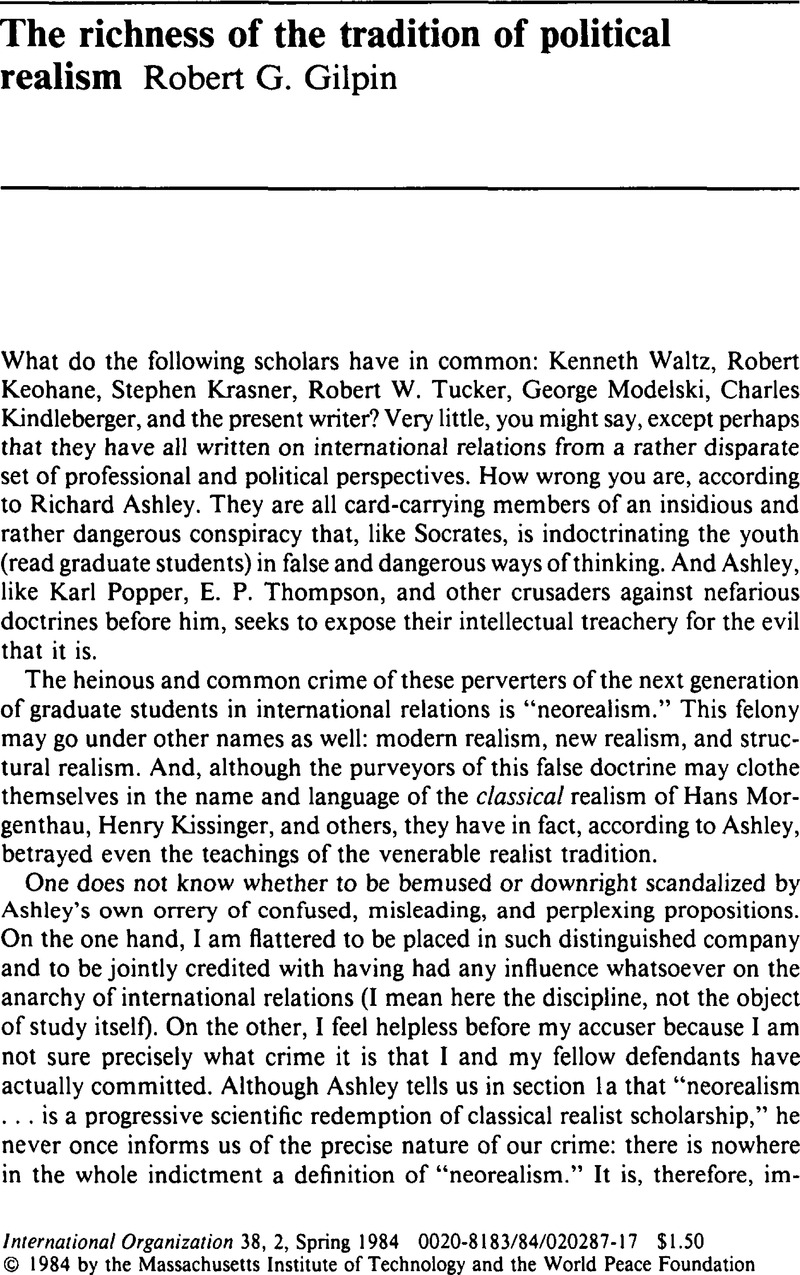Article contents
The richness of the tradition of political realism
Published online by Cambridge University Press: 22 May 2009
Abstract

- Type
- Symposium on the New Realism
- Information
- Copyright
- Copyright © The IO Foundation 1984
References
1. Waltz, Kenneth N., Theory of International Relations (Reading, Mass.: Addison-Wesley, 1979)Google Scholar.
2. Gilpin, Robert, War and Change in World Politics (New York: Cambridge University Press, 1981)CrossRefGoogle Scholar.
3. Dahrendorf, Ralf, Class and Class Conflict in Industrial Society (Stanford: Stanford University Press, 1959)Google Scholar.
4. Thucydides, , The Peloponnesian War (New York: Modern Library, 1951), p. 44Google Scholar.
5. Carr, Edward Hallett, The Twenty Years' Crisis, 1919–1939 (London: Macmillan, 1951)Google Scholar.
6. Morgenthau, Hans, Scientific Man versus Power Politics (Chicago: University of Chicago Press, 1946)Google Scholar.
7. Morgenthau, Hans, Politics among Nations (New York: Alfred A. Knopf, 1973), p. 4Google Scholar, emphasis added.
8. Viner, Jacob, “Power versus Plenty as Objectives of Foreign Policy in the Seventeenth and Eighteenth Centuries,” World Politics 1 (10 1948), pp. 1–29CrossRefGoogle Scholar.
9. Gilpin, , War and Change, esp. p. 129Google Scholar.
10. Ashley, Richard K., “Realist Dialectics: Toward a Critical Theory of World Politics” (Paper prepared for the American Political Science Association meeting, Denver, Colo., 09 1982), pp. 26–28Google Scholar.
11. Gilpin, , War and Change, p. 18Google Scholar.
12. Ibid., pp. 18–19.
13. Ibid., p. 229.
14. Ibid., p. 18.
15. Ashley, , “Realist Dialectics,” p. 32Google Scholar, his emphases.
16. Craig, Gordon A. and George, Alexander L., Force and Statecraft–Diplomatic Problems of Our Time (New York: Oxford University Press, 1983)Google Scholar.
17. Meinecke, Friedrich, Machiavellism; the Doctrine of raison d'état and Its Place in Modern History, trans, by Scott, Douglas (London: Routledge, 1957)Google Scholar.
18. Craig, and George, , Force and Statecraft, p. 5Google Scholar.
- 116
- Cited by


